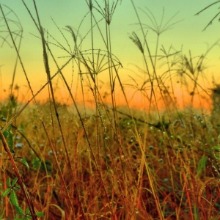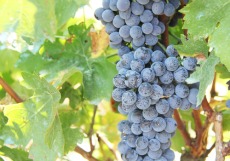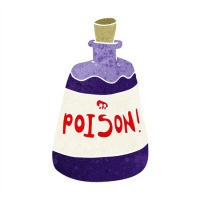Scripture
Mark 4:3-8 (NIV)
“Listen! A farmer went out to sow his seed. As he was scattering the seed, some fell along the path, and the birds came and ate it up. Some fell on rocky places, where it did not have much soil. It sprang up quickly, because the soil was shallow. But when the sun came up, the plants were scorched, and they withered because they had no root. Other seed fell among thorns, which grew up and choked the plants, so that they did not bear grain. Still other seed fell on good soil. It came up, grew and produced a crop, multiplying thirty, sixty, or even a hundred times.”
Consider
This familiar “Parable of the Sower” might just as well be called “Parable of the Soils.” Its focus is neither on the farmer (God) nor on the harvest produced by the seed (Word of God) but rather on the nature of the various soils that receive the seed. Jesus later explains how the soil imagery describes people’s hearts and whether they will allow themselves to be changed by the Word they hear.
The first two soils mentioned are unproductive because they are poor quality. They represent people who either are deceived by Satan into rejecting God’s Word or are discouraged by difficulties into dismissing the good news they hear.
The third soil, interestingly, is higher quality than the first two. It has a chance to produce fruit for the kingdom but is too overgrown with thorns and weeds to be useful. This is a revealing image of the believer who wants to follow God but is tangled in “the worries of this life, the deceitfulness of wealth and the desires for other things” (verse 19). This person’s “heart-soil” is rich, and the seed of God has found a home. Nevertheless, the spiritual growth that God intends is being smothered by worry, greed, and the desire for things of this world.
Forgiveness is a spiritual crop that God desires to grow in each of us. It is a natural product of the Holy Spirit’s work in a heart that is committed to following God. Therefore, when you find you’re having difficulty forgiving, it’s a good time to take a look at your “soil.”
If the injury you’ve suffered is fresh, it may take some time to “yield a crop,” that is, to forgive. James comments on the farmer’s patience, waiting for the autumn and spring rains before his land will yield a valuable crop (5:7). Forgiveness is indeed a valuable crop that may require time and healing to mature and yield a good harvest.
If, on the other hand, time has already hardened your injury into a stubborn grudge, then you know you’ve got a weed problem. In such case, it’s best to focus your attention on the soil rather than on the crop. Examine your heart for whatever might be smothering God’s efforts to grow love and forgiveness in you. Clear the weeds—bitterness, fear, anger, selfish desires, pride—and make room for the seed of God’s goodness to grow and flourish in your relationships.
Pray
FATHER, you are the author and giver of all goodness. I need this goodness to help me forgive those who wrong me. Examine my heart and help me to identify the hungry weeds that are choking my efforts to follow in your footsteps. Thank you for showing us in Jesus the good harvest you similarly desire to raise in us by your grace.
Reflect
1 Corinthians 3:7; 2 Corinthians 9:10-11
Ponder
What is the biggest obstacle, or “weed,” that keeps you from letting go of an injury?








